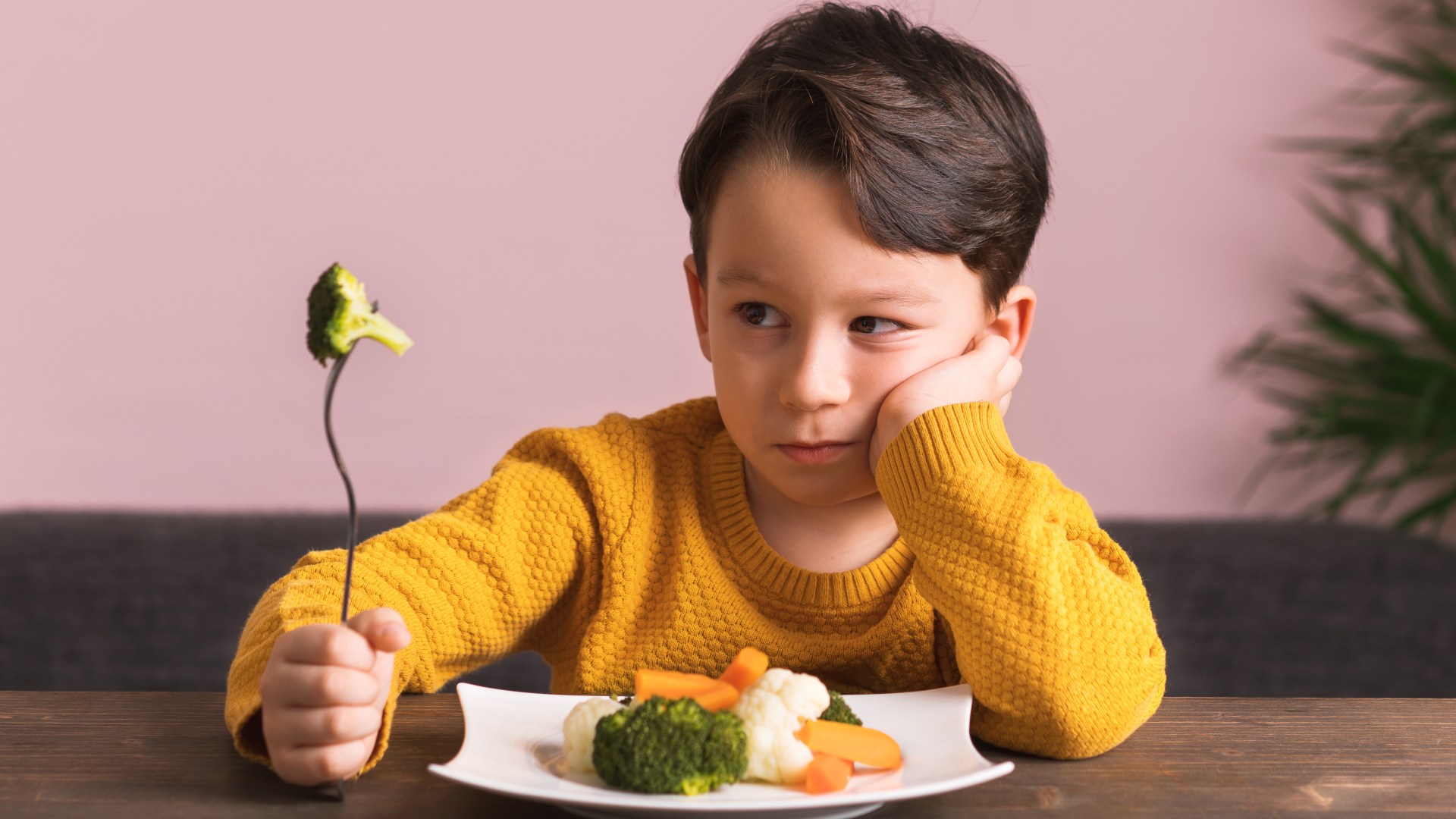PARENTS are not to blame if their children are fussy eaters, according to experts.
Research suggests being picky about food is mostly genetic.
1
The bad news is that it means it can last well into their teenage years.
A study of 2,400 pairs of twins found it is significantly more likely for both siblings to be fussy if they are identical than if they are not.
It shows their DNA plays a key role as non-identical pairs can be brought up the same way but eat differently.
Scientists at University College London said their findings might “alleviate parental blame”.
Read more on child health
But they added mums and dads can reduce the risk of having a choosy tot by having family mealtimes and introducing infants to a wide range of foods.
Lead author Dr Zeynep Nas said: “Food fussiness is common among children and can be a major source of anxiety for parents.
“Parents often blame themselves or are blamed by others.
“We hope our finding may help to alleviate that blame.
“This behaviour is not a result of parenting.
“Our study also shows that fussy eating is not necessarily just a ‘phase’, but may follow a persistent trajectory.”
They found that kids who are particular in childhood are likely to stay the same way in adolescence.
Parents in the study, published in the Journal of Child Psychology and Psychiatry, answered questions about their twins’ habits at ages 16 months, three years, five, seven and 13.
They found non-identical twins’ tastes were much less similar than identical ones, proving that genetics played a big part.
Identical twins drifted apart as they got older, showing the influence of genes faded over time and their lifestyle played more of a role.
Fussy eating is not fixed – parents can support their children to eat a wide variety of foods
Dr Alison Fildes
Surveys show half of British parents think their toddlers are fussy eaters.
Finicky kids tend to eat more junk food and refuse fruit and veg, meaning parents worry about their health.
They might throw tantrums because they do not want to try new things or claim not to like the taste or texture of certain foods.
Senior study author Dr Alison Fildes, from the University of Leeds, said: “Although fussy eating has a strong genetic component this doesn’t mean it is fixed.
“Parents can support their children to eat a wide variety of foods throughout childhood and into adolescence.
“Friends might become a more important influence on children’s diets as they reach their teens.”
WHAT TO DO ABOUT FUSSY EATING
MILLIONS of parents experience fussy eating and have children who won’t eat their greens. Here are some tips for dealing with it
Eat the rainbow: It’s not all about greens. Include fruit and vegetables that are a range of colours into your children’s diets. Different colours can help get them excited to eat them.
Add fruit to meals: Add fruit to meals without fanfare. Normal breakfasts, salads and desserts are easy to add bits of fruit and veg to without changing them.
Have fun with fruit: Be inventive with getting kids to understand more about the textures and flavours of fruit. Have a go at mashing up berries or creating fruit art.




